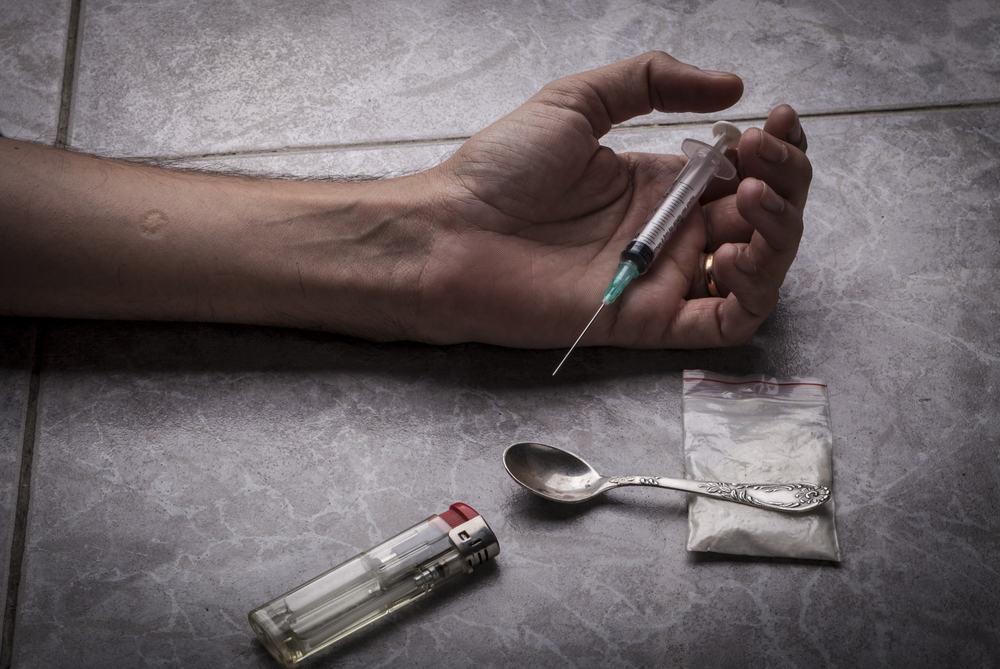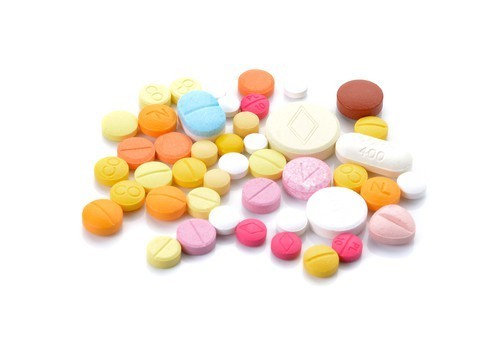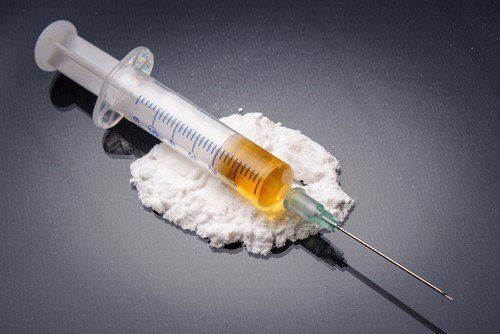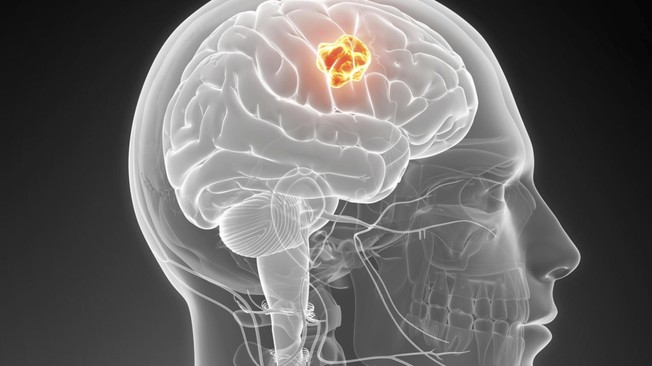Contents:
- Medical Video: Top 10 Most Dangerous Street Drugs
- 1. Marijuana
- Effects of marijuana
- 2. Shabu
- Meth effect
- 3. Ecstasy
- Effects of ecstasy
- 4. Heroin
- Heroin effect
Medical Video: Top 10 Most Dangerous Street Drugs
According to BNN, drugs (narcotics and illegal drugs) are substances / substances that can affect a person's psychological / psychological condition (thoughts, feelings and behavior), and can lead to physical and psychological dependence. Narcotics are divided into 4 groups, namely groups Cannabis, Amphetamine Type Stimulants (ATS), Opiad and Tranquilizer.
- Cannabis = marijuana / marijuana and hasish (cannabis sap)
- ATS = amphetamine, ecstasy, katinon and methamphetamine (methamphetamine)
- Opiad = heroin (putau), morphine, opium, pethidine, codeine, subutec / subuxone and methadone
- Tranquilizer = luminal, nipam, koplo pills, mogadon, valium, camlet, dumolid, cocaine and ketamine
According to a survey conducted by the BNN in 2014, the types of drugs most often consumed in Indonesia are marijuana, meth, ecstasy and heroin.
The most popular type of drug in Indonesia
1. Marijuana
Other name: cimeng, marijuana, gele, pocong
Marijuana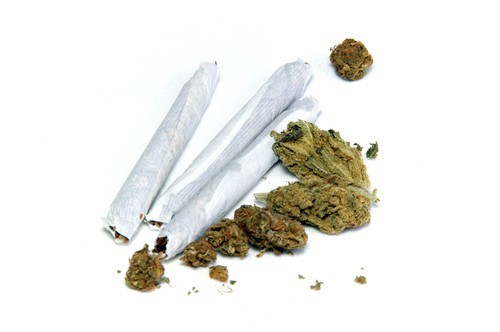
Marijuana is the most commonly used illegal drug in the world, including Indonesia. The survey results by the BNN show marijuana with the highest consumers, namely, 956,002 workers, 565,598 students and 460,039 households.
People use dried marijuana by putting it in cigarette rolls or into pipes (bongs). They also sometimes empty tobacco on cigarettes and fill it with marijuana. To avoid the smoke produced, many people use vaporizers (vaporizers) which are also often called bongs. This tool can attract active substances, including THC from marijuana and collect their steam in the storage unit. Then someone will breathe the vapor, not breathe smoke.
Effects of marijuana
Short-term effects
When someone smokes marijuana, THC will quickly pass through the lungs to the bloodstream. The blood will carry these chemicals to the brain and other organs throughout the body. The body will absorb THC more slowly when there is eating or drinking activity. Therefore, in general users will feel the effect after 30 minutes to 1 hour.
THC works on certain brain cell receptors that usually react to natural substances similar to THC in the brain. These substances have a role in the development and function of the brain. Cannabis will impose a function on the part of the brain that contains the highest number of receptors. This will cause users to feel "high"And several other effects such as:
- Change of senses
- Change awareness of time
- Change mood
- Impaired body movements
- Difficulty thinking and solving problems
- Memory is interrupted
Long-term effects
Marijuana also affects brain development. When a teenager uses marijuana, he will feel a decrease in thinking, memory, and learning functions and affect brain performance. The effect of marijuana on the problem will last long or even permanently.
In addition, cannabis can also cause physical and mental effects such as:
- Respiratory disorders. Marijuana smoke can irritate the lungs which causes coughing up phlegm, lung pain and lung infections.
- Increase heart rate. Marijuana can increase heart rate after 3 hours of smoking. This can cause a heart attack.
- Child development problems during and after pregnancy. The use of marijuana during pregnancy can affect the brain and behavior in infants.
- Hallucinations, paranoia and irregular thinking. Prolonged use of marijuana can affect a person's mental state.
2. Shabu
Other name: meth, methamphetamine, crystals, lime, ice
Met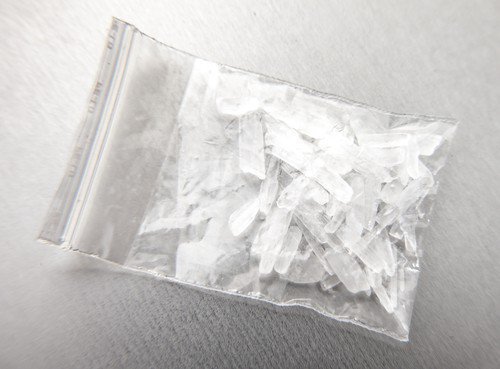
Shabu can be consumed by eating, put into cigarettes, smoked and dissolved in water or alcohol, then injected into the body. Smoking or injecting meth can have a very fast effect on the brain and will produce intense euphoria. Because euphoria can fade quickly, users often use it repeatedly.
Meth effect
Short-term effects
As a strong stimulant, even small doses of shabu can increase insomnia and reduce appetite. Shabu can also cause heart problems, including a rapid heartbeat, irregular heartbeat and increased blood pressure. If you are already in an overdose, meth will cause convulsions, increased body temperature and death.
Shabu can also increase the amount dopamine neurotransmitter which leads to high levels of chemistry in the brain. Dopamine is involved in motorized fingering for pleasure and motivation. The ability of meth in releasing dopamine to the brain is so rapid that it will produce sudden and brief euphoria, so users will continue to add the dose. In short the short term shabu effect is:
- Insomnia
- Loss of appetite
- Euphoria and hurry
- Increased respiration
- Fast and irregular heartbeat
- Hyperthermia
Long-term effects
Long-term abuse of meth can cause many negative effects such as chronic addiction and is accompanied by functional and molecular changes in the brain. Tolerance to the effects of excitement on meth will develop when used repeatedly. Users will always take higher doses to get the desired effect, so their lives will be tied to the drug. When not consuming meth, they will get symptoms of depression, anxiety, fatigue, and a strong desire to take drugs.
In addition, the use of methamphetamine has been shown to have a negative impact on non-nerve brain cells called microglia. These cells support brain health by protecting the brain from infectious agents and removing damaged neurons. If there is damage to the cell then this can increase a person having a stroke that can cause permanent damage to the brain. A recent study even showed a higher incidence of Parkinson's disorder among former meth users. The following are long-term physical and mental effects:
- Addiction
- Psychological effects such as paranoia, hallucinations, and repetitive motor activity
- Changes in brain structure and function
- Decreased thinking ability and motor skills
- Weakening concentration
- Memory loss
- Aggressive or violent behavior
- Mood disorders
- Severe dental problems
- Weight loss
3. Ecstasy
Other name: E, X, XTC, inex
Ecstasy is a common name for 3,4-methylenedioxymethamphetamine (MDMA). Ecstasy is a synthetic chemical with a complex effect that mimics stimulant meth and hallucinogenic compounds. Initially ecstasy was patented by the German pharmaceutical company Merck, in 1910 and was used as a medicine to improve mood and diet. However, in 1985, US Drug Enforcement (DEA) banned the use of this drug because of its potential as a brain-damaging agent. According to the National Narcotics Agency, meth is the third most commonly used type of Narcotics with 302,444 workers, 140,614 households and 106,704 students.
Effects of ecstasy
Short-term effects
Ecstasy users will usually feel the effect 30 minutes after consuming ecstasy caused by a combination of stimulants and hallucinogenic properties including the effects of transient hypertension and problems with thermoregulation (agents for increased body temperature).
Other effects that will also be felt by users who can survive for 6 hours include:
- Decreased appetite
- Insomnia
- Dizziness and fever
- Muscle cramps
- Tremor
- Cold sweat
- Blurred vision
- Increased heart rate
- Blood pressure increases
- Tighten the mouth, face and chin
Long-term effects
Researchers believe that ecstasy can cause serotonin leakage in the brain during its use. Without the functioning of the neurotransmitter, conditions such as depression, anxiety, insomnia and memory loss will be more likely to occur. This condition will appear for a long time, even after the usage has ended. The following are the long-term effects on psychology and the physical:
- Increase addiction
- Panic attack
- Insomnia
- Unconscious perception
- Inability to distinguish reality and fantasy
- Paranoid delusion
- Depression
4. Heroin
Other name: putaw, powder, etep
Heroin or putaw is a highly addictive drug that is processed from morphine, which is a natural substance from the seeds extract of certain varieties of poppy plants. Heroin is usually sold in the form of white or brown powder mixed with sugar, starch, milk powder or quinine. Pure heroin is a very bitter white powder and usually comes from South America. There are also black tar sticky and hard heroin, usually produced in Mexico and sold in America in the western part of the Mississippi River 3. The dark color comes from the mixture of remaining black heroin and tar from the method of processing crude oil. According to the BNN survey results, Heroin is the 4th most consumed type of drug, with 33,358 household users, 32,782 workers and 29,838 students.
Heroin is usually used by sucking, put in a cigarette or thawed by heating it on a spoon and then injecting it into a blood vessel, muscle, or under the skin.
Heroin effect
Short-term effects
After the heroin enters the brain, it will morphine and bind quickly to the opiate receptor. Users usually feel the sensation of excitement in a hurry. The intensity of excitement depends on the amount of drug consumed. The following are short-term heroin effects:
- Fever
- Dry mouth
- Nausea
- Itchy
- Heart function slows down
- Breathing slows down
- Coma
- Permanent brain damage
Long-term effects
The use of heroin can change the physical structure and physiology of the brain which can create long-term imbalances in the nervous system and hormones. The researchers showed some white brain damage due to heroin, which can influence decision making, regulating behavior and responses to stressful situations. In addition, the following effects of long-term heroin on the body:
- Decreased dental health is characterized by damaged teeth and swollen gums
- Skin excision from scratching
- Increased susceptibility to disease due to decreased immune system
- The body becomes weak
- Poor appetite and malnutrition
- Insomnia
- Decreased sexual function
- Permanent liver or kidney damage
- Lack of oxygen in the brain
- Heart valve infection
- Miscarriage
- Addiction that causes death
READ ALSO:
- Narcotics and Adolescents: Avoiding Bad Effects of Peer Friends
- Can Tobacco Make Addiction?
- Good Bad Aspirin, Medicines for Million People

